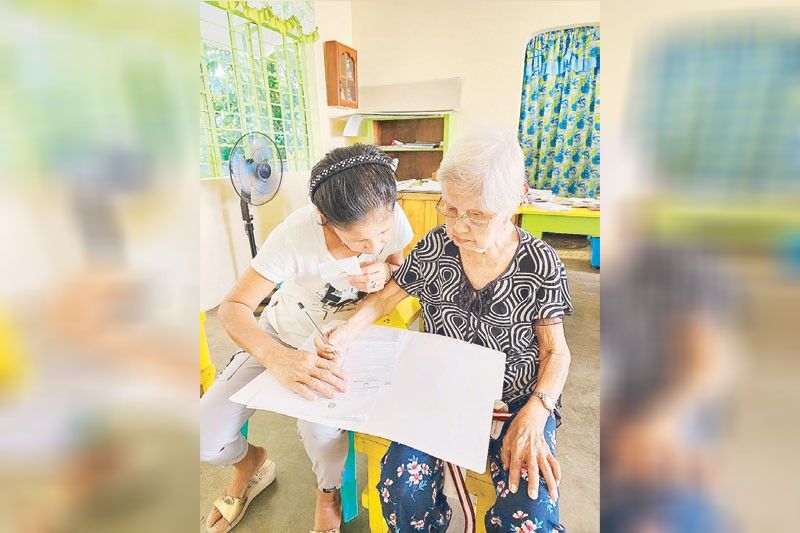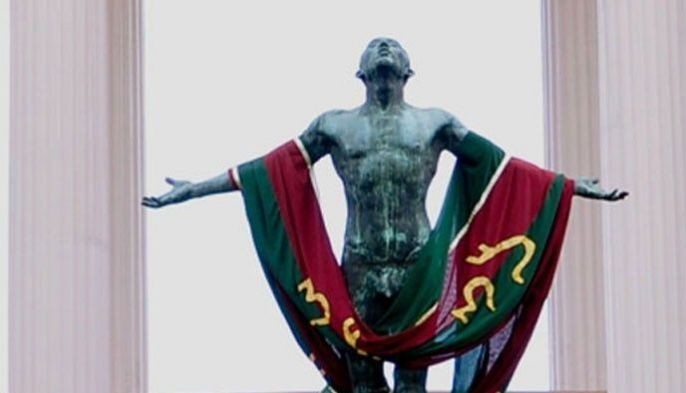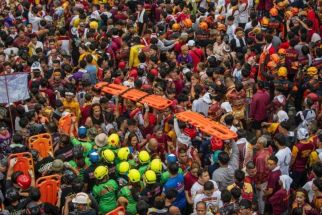Pilot testing for elderly, mall voting a success

MANILA, Philippines — The Commission on Elections (Comelec) yesterday declared as successful the pilot testing of early voting hours for senior citizens, persons with disabilities (PWD) and heavily pregnant women.
It also declared the trial mall voting in 11 selected areas of the country a success in the barangay and Sangguniang Kabataan elections (BSKE).
Comelec Chairman George Garcia said the poll body pilot tested the early voting scheme in two cities – Muntinlupa in Metro Manila and Naga in Bicol – with polling centers opening for the elderly, PWD and the heavily pregnant from 5 a.m. to 7 a.m.
Muntinlupa Mayor Ruffy Biazon wished that the scheme would be expanded nationwide after seeing a good turnout among the elderly and PWD. The city has about 5,100 senior citizens and 1,000 PWDs.
Garcia described the implementation as a “blockbuster” with the elderly lining up as early as 4 a.m. to cast their votes.
“We could see that our senior citizens were happy and contented with their early voting. We could also say that we have accomplished what we wanted to achieve with the mall voting,” Garcia said in Filipino during a radio interview, noting that those who voted in malls “enjoyed a one-of-a-kind experience.”
With around 60,000 voters able to cast their votes in different malls nationwide, Garcia said the Comelec might expand its coverage to include more of the country’s malls during the 2025 local and national elections.
The poll chief also reported that 880 persons deprived of liberty or PDL in detention at the Bureau of Corrections were able to cast their votes from 6 a.m. to 2 p.m.
He said the PDLs are among the “vulnerable sectors” that must still be provided the right of suffrage.
“We should never disenfranchise anybody,” Garcia stressed as he explained that the PDLs who participated in the voting were still without final conviction.
On the use of automated voting machines, he noted that while some of these were reported to have malfunctioned, it did not deter the pilot testing of an automated BSKE and that the winning candidates were expected to be proclaimed as early as 6 p.m.
Also in yesterday’s BSKE, the Comelec deployed a number of policemen to serve as election board members in Abra province and in some areas in Mindanao after thousands of teachers backed out from performing poll duties.
It also reported that the elections pushed through in Maguindanao despite the shooting incidents that resulted in the death of two people. Garcia said the Philippine National Police (PNP) has already launched a manhunt operation against those involved in the shooting incidents.
To support yesterday’s BSKE, the Department of Health (DOH) deployed a number of health personnel in several selected priority cluster precincts nationwide to provide basic health services to voters and election workers.
These Human Resources for Health or HRH, according to a statement, were stationed in voting precincts to give free, timely and effective basic first aid assistance, essential medicines and access to emergency medical services.
The HRH was also tasked to ensure that all hazards, risks and dangers to health are addressed in relation to the BSKE.
“They were also given instruction to coordinate with the DOH and local government unit hospitals for referral of patients if the need arises. The DOH hospitals were tasked to prepare their health facilities and resources to receive election-related patients,” the statement noted.
The DOH is also conducting a survey among its licensed hospitals to check on their capabilities in putting up a senior citizen ward and determine whether the hospitals are currently providing geriatric health services and investing on fixed and tangible assets to manage senior patients and cater to their needs.
“It is imperative to assess the readiness of government-owned hospitals in the establishment of senior citizen ward among its catchment population and provide the necessary investment to complement the said service in terms of clinical and ancillary health support services, infrastructure, equipment and human resource, among others,” its Department Circular 2023-0481 read in part. — Rhodina Villanueva
- Latest
- Trending






























